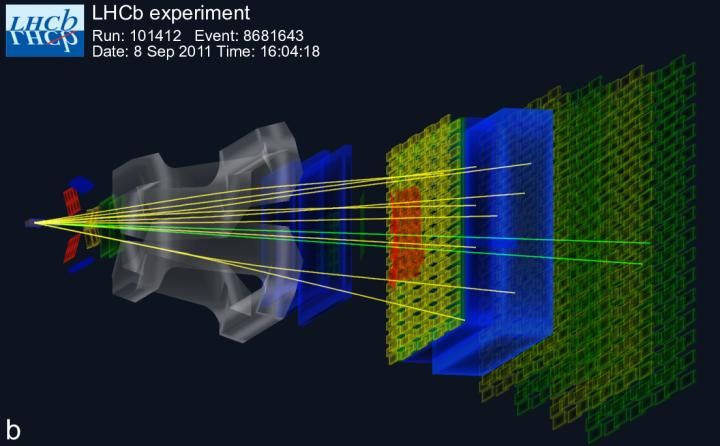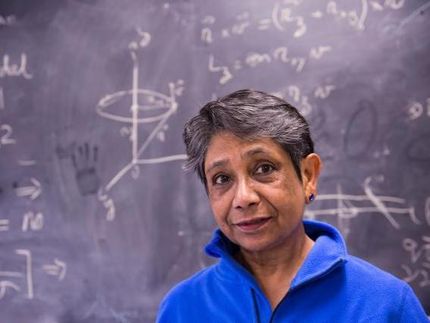Evidence suggests subatomic particles could defy the standard model
Large Hadron Collider team finds hints of leptons acting out against time-tested predictions
Advertisement
The Standard Model of particle physics, which explains most of the known behaviors and interactions of fundamental subatomic particles, has held up remarkably well over several decades. This far-reaching theory does have a few shortcomings, however - most notably that it doesn't account for gravity. In hopes of revealing new, non-standard particles and forces, physicists have been on the hunt for conditions and behaviors that directly violate the Standard Model.

CERN/LHCb Collaboration
Now, a team of physicists working at CERN's Large Hadron Collider (LHC) has found new hints of leptons, being treated in strange ways not predicted by the Standard Model. The discovery,is published in Physical Review Letters, could prove to be a significant lead in the search for non-standard phenomena.
The researchers looked at B meson decays including two types of leptons: the tau lepton and the muon. Unlike their stable lepton cousin, the electron, tau leptons and muons are highly unstable and quickly decay within a fraction of a second.
According to a Standard Model concept called "lepton universality," which assumes that leptons are treated equally by all fundamental forces, the decay to the tau lepton and the muon should both happen at the same rate, once corrected for their mass difference. However, the team found a small, but notable, difference in the predicted rates of decay, suggesting that as-yet undiscovered forces or particles could be interfering in the process.
"The Standard Model says the world interacts with all leptons in the same way. There is a democracy there. But there is no guarantee that this will hold true if we discover new particles or new forces," said study co-author and UMD team lead Hassan Jawahery, Distinguished University Professor of Physics and Gus T. Zorn Professor at UMD. "Lepton universality is truly enshrined in the Standard Model. If this universality is broken, we can say that we've found evidence for non-standard physics."



























































